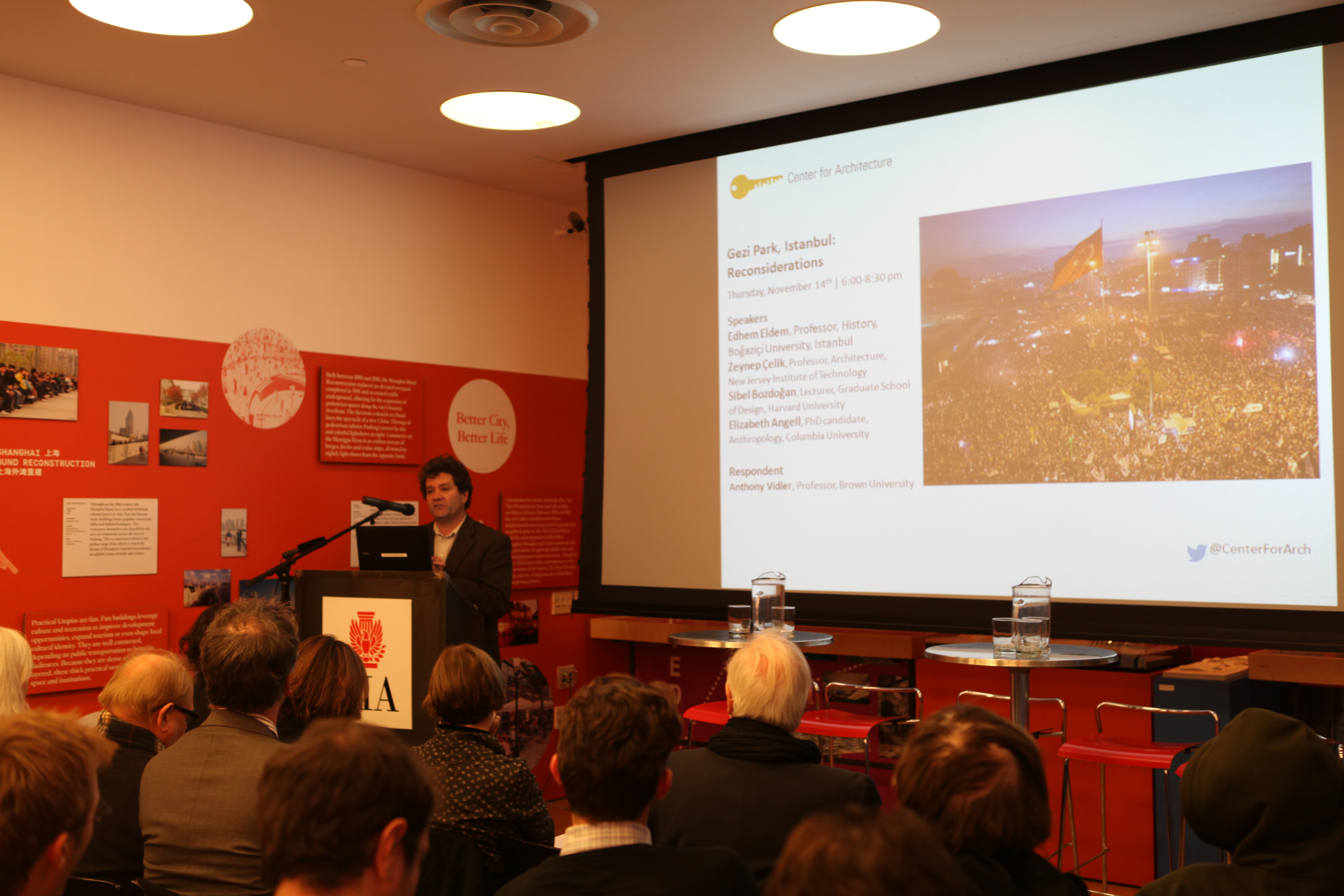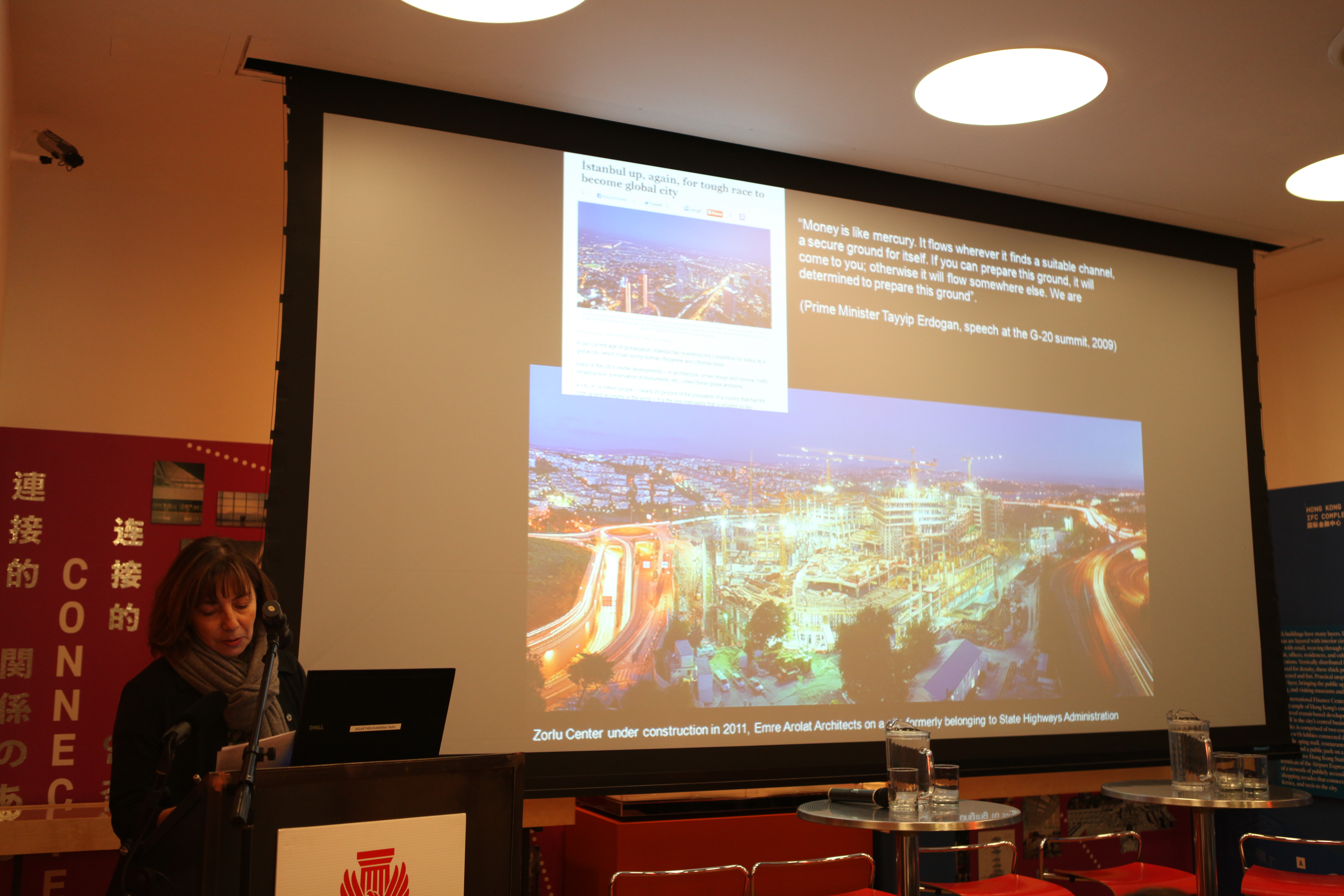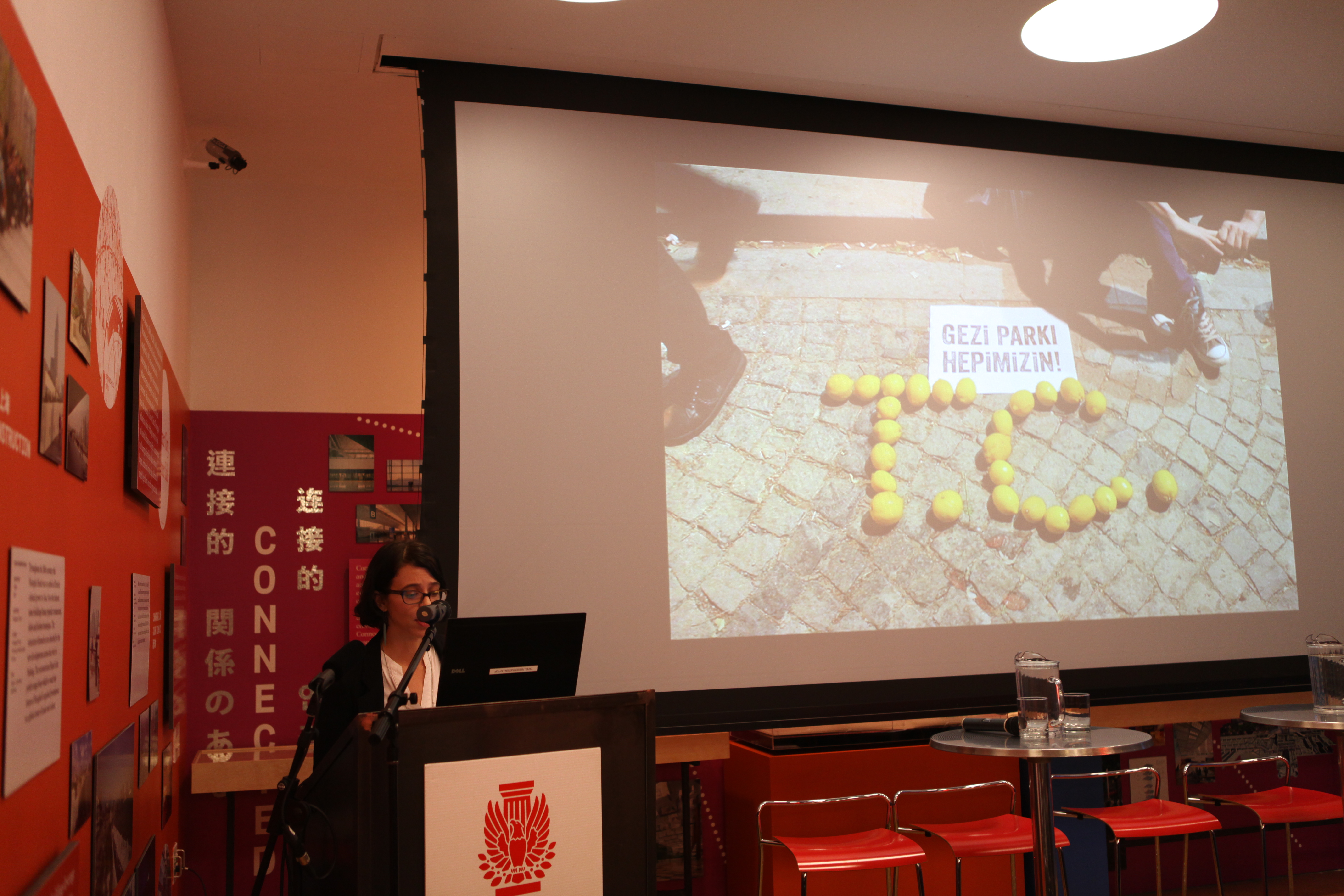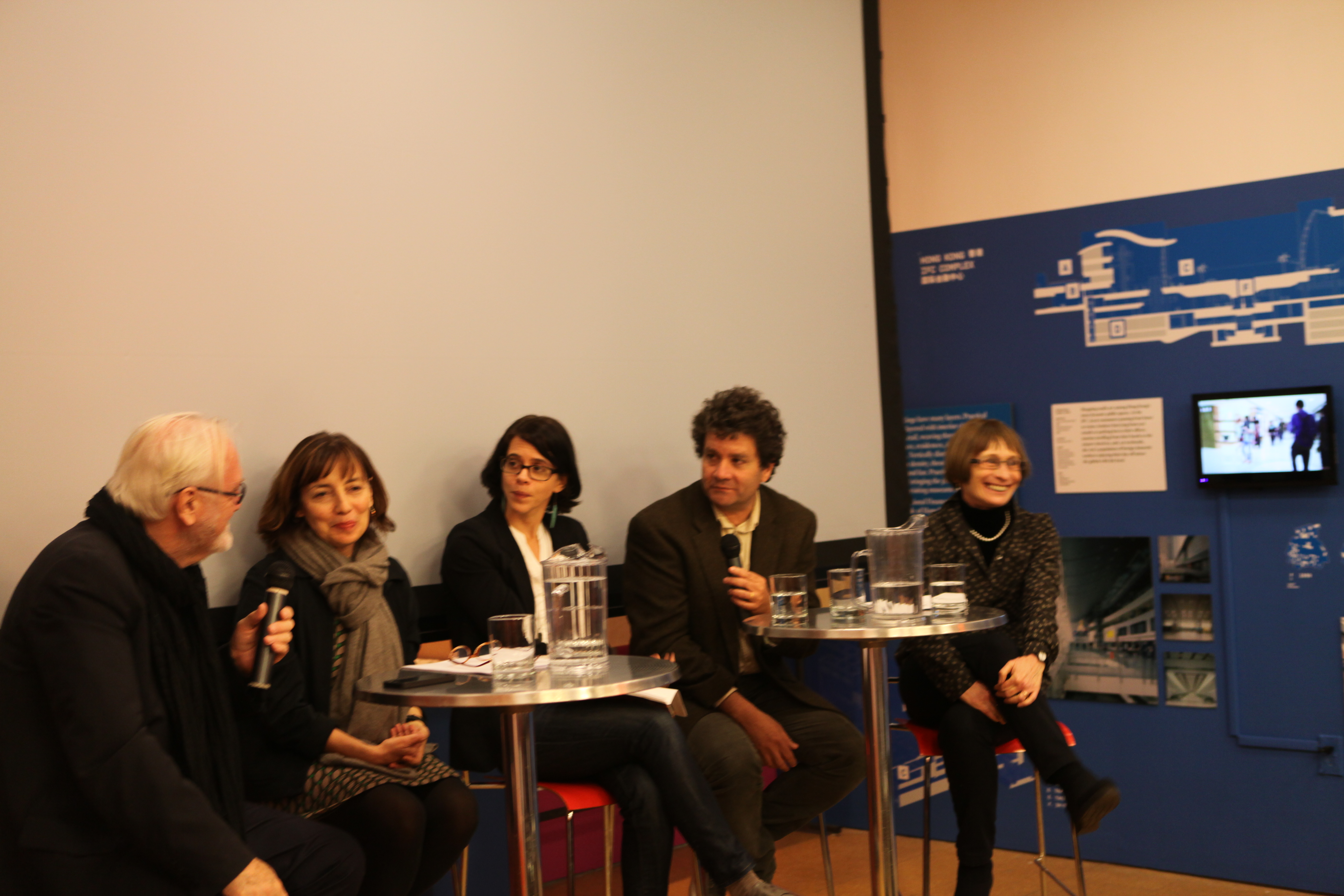by Nicole Pope
The controversy over the fate of Istanbul’s Gezi Park provided the backdrop for protests that took everybody by surprise in late spring.
At home, the unrest and the government’s response have increased polarization; abroad, they have caused many to question what really lies below the surface of economic expansion and rapid urban development in Turkey, and to wonder about the political and social consequences.
On 11.14.13, a panel discussion held in New York at the Center for Architecture, titled “Gezi Park, Istanbul: Reconsiderations,” focused primarily on the context: the city itself, the Taksim area and the political and economic environment fuelling the rapid changes in the city. The spark for the protests was provided by attempts — currently shelved — to redesign Taksim and rebuild the Ottoman Artillery Barracks, remodeled as a shopping mall and luxury residence complex, on the current location of Gezi Park.
With slides that offered a glimpse of bygone eras, Zeynep Çelik, professor of architecture at the New Jersey Institute of Technology, explained that the planning of parks was always political and often controversial, raising issues of class, ethnicity and gender. In 1864, an Armenian cemetery was moved to make space for a large municipal park in the Taksim area, which proved very popular. It had tea gardens and hosted concerts and theatre plays, but Turkish women were excluded and they complained about this situation in periodicals of the time.
Before they were demolished to make way for Gezi Park, part of French master-planner Henri Prost’s plans for the city, the Barracks became a sports ground and football stadium. The new park was in fact called Inönü Gezisi — the Inönü Promenade. It is partly to remove this Kemalist stamp on Taksim and give it a more Ottoman touch that Prime Minister Recep Tayyip Erdoğan insisted on redeveloping this central spot, ignoring growing discontent.
The construction of the Hilton Hotel, on park land in 1960, marked a turning point, paving the way for further private sector encroachment in central İstanbul. As Sibel Bozdoğan, lecturer at the Graduate School of Design at Harvard University, explained, the transformation of İstanbul, now rebranded a global city, has picked up pace since the Justice and Development Party (AKP) came to power. Public space in prime locations has been privatized, replaced by new developments like the massive Zorlu Center, built on land previously owned by the State Highways Administration.
Just like the military barracks and parks served a political agenda and aimed to project a certain image of the city, so does the current construction boom. Urban development is part of a PR campaign and Erdoğan is the master builder, proving he can get things done.
But several key projects of the AKP, such as the third bridge or the “crazy” canal, go against the recommendations of the İstanbul Metropolitan Plan drawn in 2004. Leading to widespread deforestation, they are likely to have a detrimental environmental impact. Then, of course, there is the human cost. Urban regeneration and the need to address earthquake risks have provided pretexts to expropriate and push poorer communities away from prime land, as was the case in Sulukule or in Tarlabaşı.
In this context, the Gezi protests are seen as an accumulation of grievances. All panelists were cautious about their lasting political impact. Edhem Eldem of Boğazici University, providing a historical perspective, pointed out that traditionally, the authorities have shown little tolerance for popular protests. The recent wave of punishment — professional chambers sidelined, students expelled from dorms — tends to confirm this view. The Gezi movement, while powerful, risks falling through the cracks of Turkey’s deeply rooted authoritarian system, which attempts to delegitimize dissent. Elizabeth Angell, a PhD candidate in anthropology at Columbia University, who spent time in Taksim studying the protests, shared her observations and asked: “When people say Taksim is ours, who is the “we”? Can Taksim be for everyone?”
This article was originally published in Istanbul-based Today’s Zaman on 11.18.13.
Event: Gezi Park, Istanbul: Reconsiderations
Location: Center for Architecture, 11.14.13
Speakers: Elizabeth Angell, PhD candidate, Anthropology, Columbia University; Sibel Bozdoğan, Lecturer, Architecture, Harvard University; Zeynep Çelik, Professor, Architecture, New Jersey Institute of Technology; Edhem Eldem, Professor, History, Boğaziçi University, Istanbul; and Anthony Vidler, Professor, Brown University (respondent)
Organizers: Center for Architecture
Sponsored by: Columbia University, Harvard University, and the New Jersey Institute of Technology




